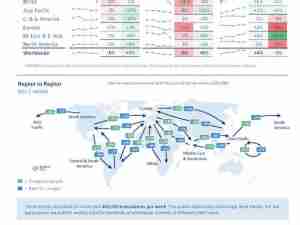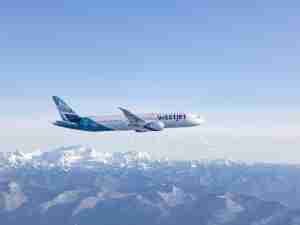The airline, which competes against Korean Air Lines Co Ltd , Singapore Airlines Ltd and China Airlines Ltd for air freight business, is grappling with high fuel costs and slow growth in the cargo and passenger markets.
"Cargo was certainly a drag on the results last year," Chief Executive John Slosar told reporters. "In the first couple of months this year, we haven't seen anything that we could call a sustained pick-up."
Air freight, which is often seen as a leading indicator of economic growth, suffered from weak demand on Cathay's Asia-Europe and Asia-U.S. routes, Slosar said. Though volume rose late in the year, overall that part of the business lost money in 2012.
The price of fuel, Cathay's biggest operational cost, rose 0.8 percent to account for 41 percent of its total operating costs last year, the firm said in a statement.
It returned to profit in the second half of 2012, reversing a hefty first-half loss to report a net profit of HK$1.85 billion ($238.5 million) for the six months ended December, based on Reuters calculations.
The carrier, which traditionally generates most of its profits from freight and its renowned premium passenger services, has cut costs by flying less frequently on some routes, and replacing fuel-thirsty planes with newer ones.
Cathay, which opened a HK$5.9 billion ($760.60 million) cargo terminal at Hong Kong international airport earlier this year, cancelled orders for eight Boeing 777 freighters this month after it lowered expectations for cargo volume growth. It placed orders for three B747-8F freighters instead.
Cargo tonnage fell 5.3 percent last year while capacity was down 3.1 percent from 2011.
For the full year, Cathay earned HK$916 million versus HK$5.5 billion in 2011 after erasing a net loss of HK$935 million in the first half, when fuel costs were steep, and international business travel was restricted by many corporations amid an uncertain global economy. (Reuters)






